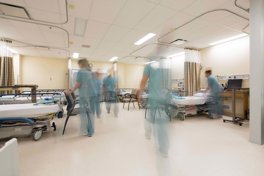
Money is not a key motivation for people who claim medical negligence compensation (claimants), according to recent figures.
According to data from NHS Resolution, formerly called the NHS Litigation Authority, just 6% of claimants cite getting financial compensation as their main reason for claiming. Only 8% said their main reason was to get financial support in coping with the future.
Instead, claimants appear to be driven more strongly by the hope of imposing changes across the NHS. Some 35% of those polled said their main reason for claiming compensation was to prevent similar incidents happening to other patients.
Meanwhile, 21% said they wanted to hold the clinicians involved to account, and 10% wanted to see a detailed investigation and explanation of the medical negligence incident. A further 10% said their main reason for claiming was to get an apology, while 9% were prompted to take make a claim by frustration with the handling of the incident.



The NHS Resolution data also indicated that a number of external factors have contributed to people’s decision to claim for medical negligence. For instance, 29.9% of those surveyed said they were advised to seek damages by the healthcare provider itself.
Many also confirmed that their decision to claim was triggered by conversations with friends, relatives and work colleagues, and how these people reacted to what had happened. NHS Resolution pointed out that since these reactions occurred in the period when people were still processing the impact of their changed circumstances, these may have further influenced the claimants to make a claim.
According to NHS Resolution, the people who had decided to claim compensation largely felt determined, calm and optimistic at the time they started their claim. This, it believes, is partly down to both the service and expectation-setting provided by their legal representation during their early conversations.
However, NHS Resolution has suggested it may also be down to the fact that claimants started to feel in control of the course of events, possibly for the first time since the act of medical negligence occurred.
“Whilst other things (e.g. the incident, the response to the complaint, the explanation or apology they received) were ‘done to’ them, this was an opportunity to ‘do something’ themselves,” the report said.
However, that’s not to suggest that people making medical negligence claims were full of positivity, as they were still dealing with the emotional fallout of what had happened.
For instance, respondents to the survey described experiencing feelings such as a sense of loss, a lack of closure, a sense of injustice, anger and deep frustration. In fact, when asked to select all the reasons for making a claim that applied to them, more than three-quarters of those polled said frustration with the handling of the incident in their answers.
At Simpson Millar our Medical Negligence Solicitors have recovered hundreds of millions of pounds in compensation for victims of clinical and medical negligence. The case studies below show just a few of the compensation settlements we have secured for our clients.
Fill in the form below to get in touch with one of our dedicated team members, or call our team today on: 0808 239 6043